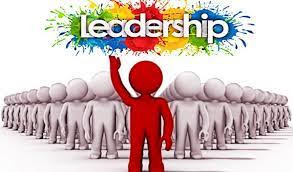
It is noteworthy that in school for instance, academic intelligence often confers automatic leadership opportunities on brilliant students. That is, most times, students that are chosen as prefects or representatives are those that are intellectually sound. Yet, most of them fail in these positions despite their high intelligence quotient.
The reality is that, effective leadership demands more than just academic intelligence. In short, it is more of soft or general skills. For instance, it is possible for a brilliant student that is given a leadership role not to have emotional intelligence, interpersonal skills, team spirit, etc. Therefore, it is imperative for students to learn the essentials of effective leadership.
It has been established that every human being has potential for leadership. But in spite of this latent ability, it is only few people that discover and utilise their leadership talent. It takes time to become a leader. John Maxwell, a renowned leadership expert educates that while a few people are born leaders, the ability to lead is actually a collection of skills, nearly all of which can be learnt and sharpened. Contrary to Maxwell’s submission on born leaders, Myles Munroe, a popular motivational speaker says leaders are not born, but are created by life. Hans Finzel, author of “The Top 10 Mistakes Leaders Make” reinforces Munroe’s assertion by submitting that top-flight leaders are not born, but they learn by example.
Scarcity of leaders
The world witnesses leadership crises today because there are many followers, supervisors and managers but only few leaders. Leadership is very abstract just like beauty because it is difficult to define, yet you know it when you see it. Leaders are ordinary people who embrace extraordinary circumstances that bring forth their latent potential. The proof of effective leadership finds practical expression in the followers, because the key to success in any human endeavour lies in the ability to lead others successfully. Everything rises and falls on leadership. Despite the large resources we have in Nigeria, for instance, we have not been able to achieve the desired development because of lack of good leadership.
Effectiveness and influence
It is said that the effectiveness of one’s work will never rise above one’s ability to lead others successfully, and one thing that is especially central to leadership success is influence. “Leaders have only their influence to aid them…Followers in voluntary organisations cannot be forced to get on board. If the leader has no influence with them, then they won’t follow,” asserts Maxwell. According to Munroe, great leaders never desire to lead but to serve. He corroborates Maxwell’s assertion by saying leadership is the ability to lead others by influence.
Unique purpose and misconception
When it comes to the issue of leadership, the purpose of leadership is not to gather as many followers as possible but to reproduce other leaders. However, many in leadership positions today believe that their leadership should be measured by the number of people that depend on them. The greatest display of leadership is service. In every follower, there is a leader and it only requires self-discovery or willingness to learn.
Good human relations and appreciation
Good human relations and appreciation are other factors central to successful leadership. There is no disputing the fact that the basis of life is people and how they relate with each other. Our success, fulfilment and happiness depend upon our ability to relate effectively. The best way to become a person that others are attracted to is to develop qualities that we are attracted to in others. Whatever your position in a relationship, if you are aware of a problem, it is your responsibility to make a concerted effort to proffer a solution. According to William James, a psychologist, as regards the issue of appreciation, which is another aspect of human relations, the deepest principle in human nature is the desire to be appreciated.
After analysing many surveys, J.C. Staehle, a great human resource management expert discovered that the principal causes of unrest among workers are failure to give credit for suggestions; failure to correct grievances; failure to encourage and criticising employees in front of other people. Others are failure to ask employees for their opinions; failure to inform employees of their progress and favouritism. All these points border on lack of appreciation or recognition.
Integrity and temperament
For you to be an effective or successful leader, you need to maintain a high level of integrity. Recent unfolding events in the corporate world have confirmed that personal moral standards are eroded because of pursuit of personal pleasure and shortcuts to success. Maxwell says integrity is not what we do so much as the person we are, and the person we are in turn determines what we do. Our system of values is so much a part of us that we cannot separate it from ourselves. It becomes the compass that guides us. It establishes priorities in our lives and judges what we will accept or reject.
You can become a person that people trust by building integrity into your relationships. You need to demonstrate whatever you want to instil in others. According to Munroe, a good leader must have integrity, and must be morally, ethically and intellectually sound. A leader must not be irrationally temperamental. Leaders must not have a negative, violent spirit. They must not be easily manipulated by the behaviour or offences of others.
Charisma
For you to realise and maximise your leadership potential or ability, you need to understand what others like about you and why. We all have the potential to develop this quality that makes the difference between personality and personality plus. The greatest leaders have the special quality that attracts people to them. The quality that draws others to you is regarded as charisma. “Charisma”, by way of creative structural decomposition and conceptual amplification, is said to be “C” for “Concern”; “H” for “Help”; “A” for Action; “R” for “Results”; “I” for “Influence”; “S” for “Sensitivity”; “M” for “Motivation”; and “A” for “Affirmation”.
Leadership mistakes
Leadership is very taxing and has multiplicity of facets such as respect, experience, emotional strength, vision, timing, people skills, etc. The ten most common leadership mistakes are identified as top-down attitude; dirty delegation; putting paperwork before peoplework; communication chaos; absence of affirmation and missing the culture clues. The remaining are giving no room for mavericks; dictatorship in decision-making; failure to focus on the future and success without successors.
Final note
The end product of leadership is reproduction also referred to multiplication. Sequentially, the stages of leadership influence are modelling, motivation, mentoring and multiplication. By modelling, we mean followers or subordinates will do things the way do you not according to what you say. So if you are a corporate leader, and you fail to walk the talk by treading the path of morality for instance, people will not take your talk seriously but will rather do what you do.
From modelling, we get to the level of motivation. This is about a leader inspiring the followers or subordinates. From motivation, the leader can become more involved in the followers by mentoring them. Reproduction or multiplication already mentioned refers to a level in which the leader has taught followers or subordinates all they need to know and they can be on their own. Endeavour to put all these tips into practice and you will definitely become a successful leader.












